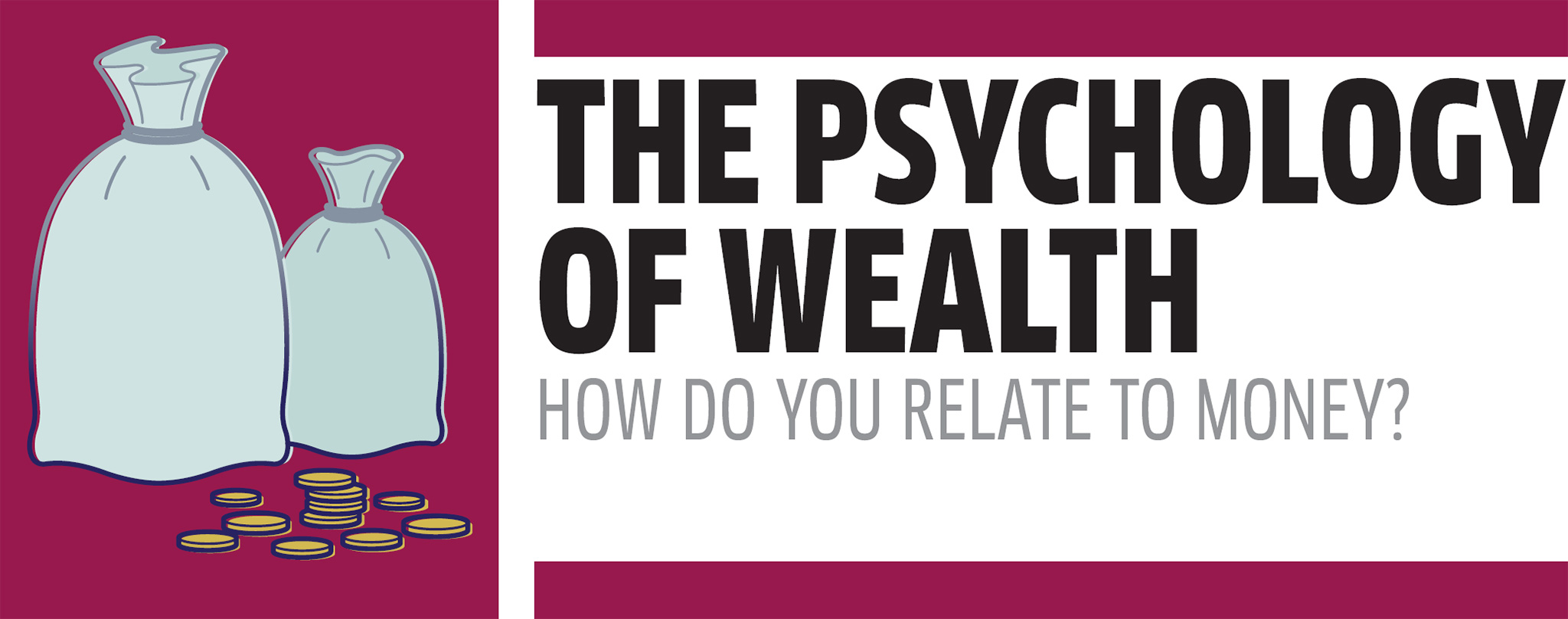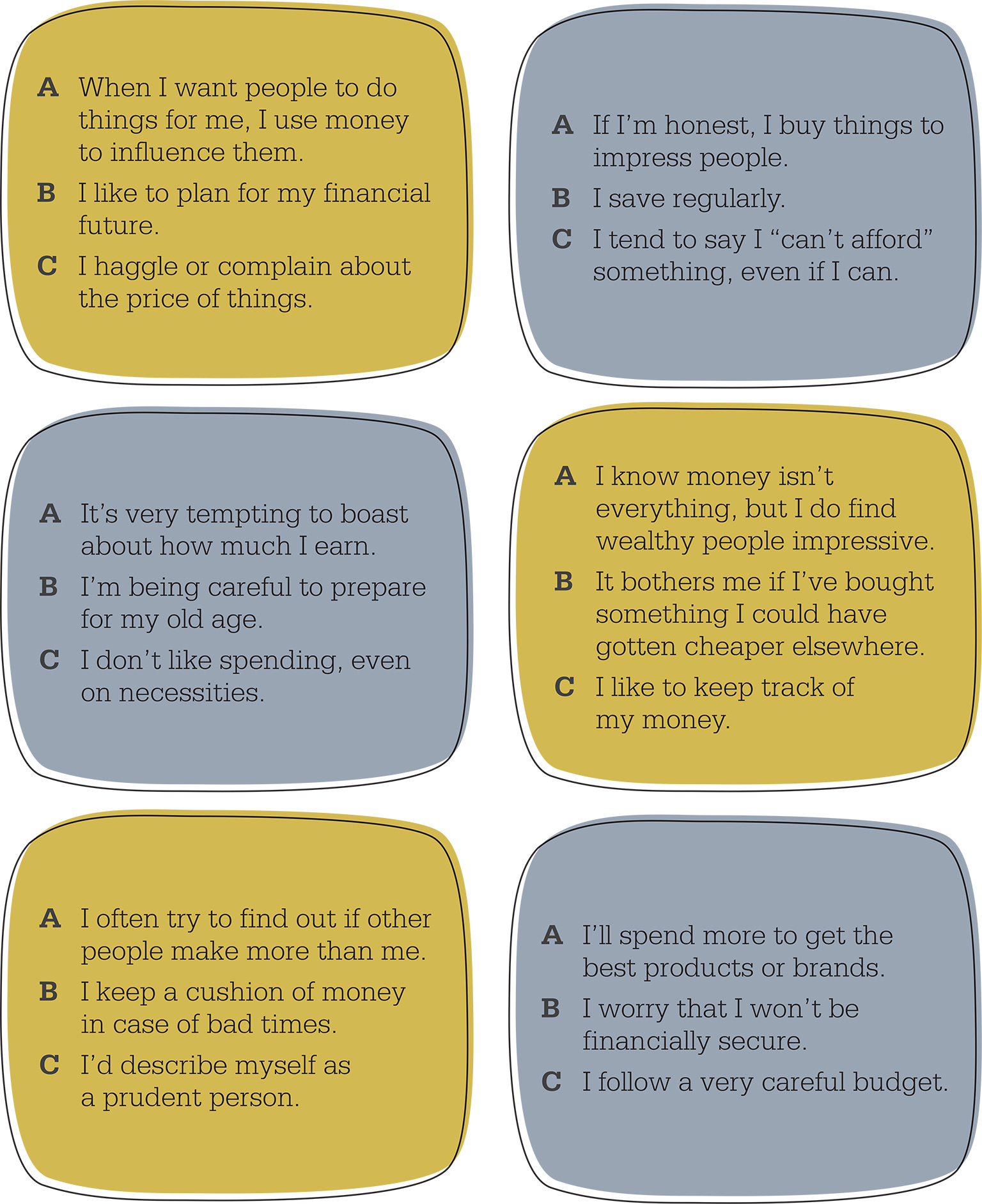
Success doesn’t necessarily mean acquiring great wealth, but lack of financial resources may make you feel like an underachiever. Money can be an emotional subject, so how do you cultivate a healthy attitude?
Ever since psychologist Sigmund Freud defined the need to hoard wealth as a sign of an “anal-retentive” personality, psychologists have been studying our relationship with money. How can you get a balanced view of this difficult subject?
What does it mean?
Is money a source of stress, a moral pitfall, or a valid symbol for one of life’s winners? In the 1990s, Taiwanese psychologist Thomas Li-Ping Tang developed what he called the “Money Ethic Scale” (MES), which is a good way to judge how we value money. Tang found that people who ranked money highly as a sign of achievement tended to experience less life satisfaction, and also that people working to a modest budget tended to be more content. Hence, the evidence suggests that treating money as a practicality rather than as a measure of your worth may make you happier. He also found that people who value money highly aren’t necessarily richer than those who don’t, so giving money low priority probably won’t end up impoverishing you!
What can it buy you?
What do you see as the main purpose of money? A useful three-point scale was devised by American psychologists Kent Yamauchi and Donald Templer, alongside a questionnaire you can use for self-testing (see “Test your money focus,”). These writers posit that our relationship with money can be measured by the following three factors:
1 Power and prestige. Using money to obtain influence over and/or impress other people.
2 Security. Using money to protect ourselves against various types of fear or want.
3 Retention. Saving for the sake of saving itself, sometimes to the point of parsimony or even obsessiveness.
They note that security and retention can overlap. Both, for example, can be apparent in a desire for “time retention,” which is when we’re motivated to be prepared for a rainy day. And both can be a sign of distrust, such as when we worry about someone cheating or overcharging us.

Money as opportunity
The sense of our being poised to embark on some new project or other experience can be very satisfying—especially when we’re conscious of having enough money to pursue a chosen plan.
Issues, however, may arise when we aren’t yet ready to commit to—and spend money on—a particular course of action. Perhaps we haven’t made up our minds between alternatives. Having to spend cash may heighten the importance of certainty. Or even if we have decided, our sense of cutting off an alternative future for ourselves, for which the money could equally well have been used, can result in paralysis: unable to commit, we do nothing. In such situations, it’s good to reassess your relationship with money. If you believe it should be a tool, what’s the point of a tool you don’t use?
Money magnifies
All this illustrates how money can magnify our psychological issues. It can make relationship problems much harder to deal with—just think of money’s role in many celebrity divorces. And having no spare cash can further lower an already low sense of self-esteem.
The message from all this is: don’t allow money to have symbolic force unless you want it to. And by extension, don’t mistake a wealthy lifestyle for happiness. True wealth lies elsewhere.
Test your money Focus
Research on attitudes about money by American psychologists Kent Yamauchi and Donald Templer was based on asking participants to answer a revealing questionnaire. Use the same questions for your own self-assessment. Which of the three statements in each bubble resonates most with you? Use the concluding summary for self-assessment, and work on the action points given.

Mostly A: Power and prestige are motivators for you.
Action: Avoid obsessive ambition. Be sure not to neglect love and friendship.
Mostly B: You’re motivated by security.
Action: Check that you’re not neglecting opportunities. Challenge yourself.
Mostly C: You have a tendency toward “retention,” or hoarding.
Action: Make sure your behavior doesn’t turn to meanness. Give generously.
